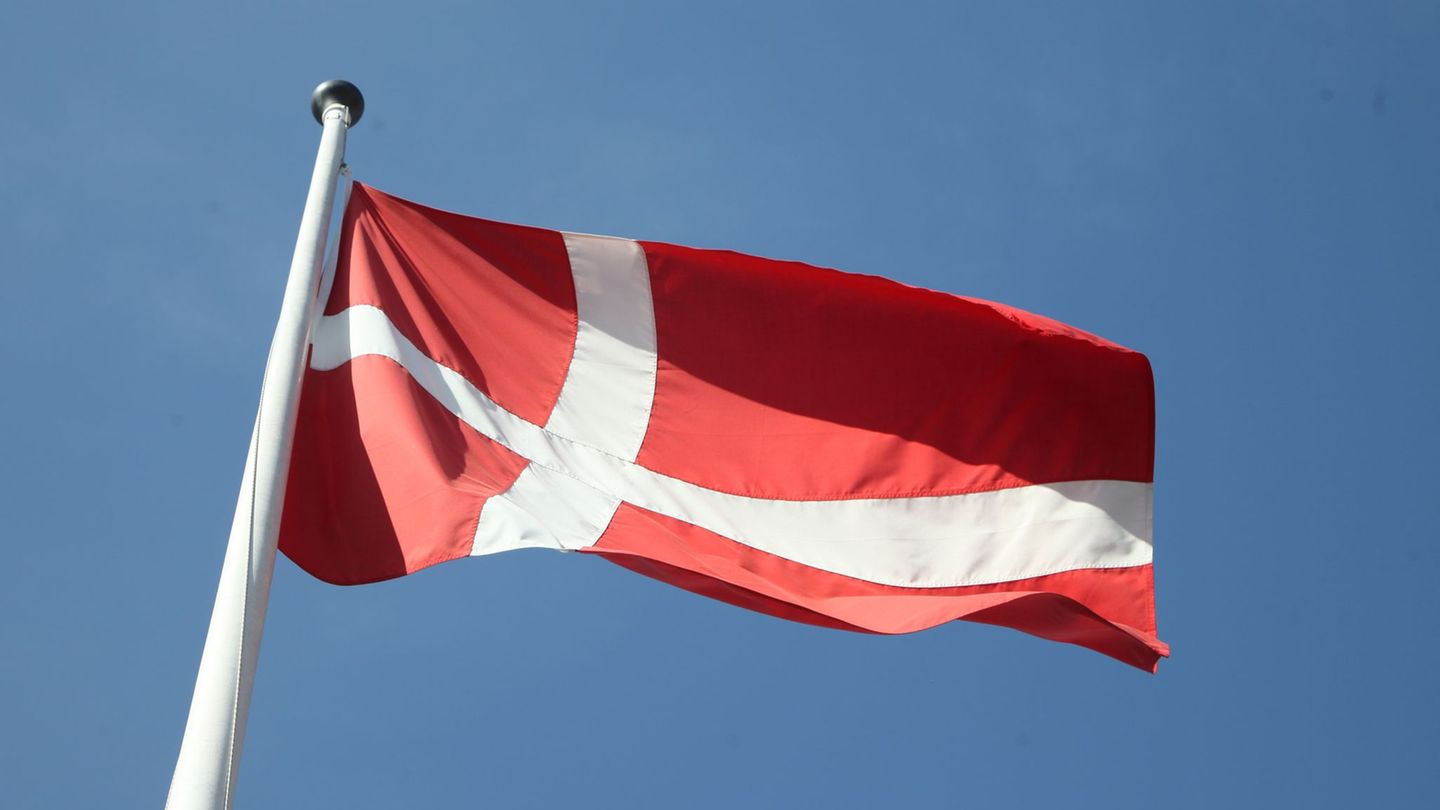“A different country” and “the germ of Putinism”: The international press is looking with concern at the results of the state elections in Thuringia and Saxony.
Decline of the traffic light parties, triumph of the populists. The election night in Thuringia and Saxony is seen as a turning point in the political situation in Germany. Even from abroad, people are looking at the east of the Federal Republic – and are sometimes shocked. The international press comments on the state elections.
International press comments on the state elections
“Corriere della Sera” (Rome): “From the whirlwind of the two state elections, a different country is emerging, a different Germany. In Erfurt and Dresden, a majority of the population entrusts its disappointments and frustrations to two populist parties, the nationalist and xenophobic ultra-right AfD and the neo-Peronist hybrid BSW, the political creation of Sahra Wagenknecht, which combines pro-Russian pacifism, economic statism and hard anti-immigration policies. The result confirms that 34 years after reunification and thousands of billions of euros invested in the former GDR, a majority of the population in the two states has no loyalty to the traditional parties. They do not accept their decisions, do not understand their codes, perhaps do not even share their concept of democracy. They feel like second-class Germans or, worse still, like foreigners in their homeland.”
“La Stampa” (Rome): “If Brandenburg, a traditionally social democratic state, joins Thuringia and Saxony on September 22nd, it will be difficult for Olaf Scholz to continue his therapeutic determination to survive in the Chancellor’s office. The heart of European integration is affected: how should the agreements that have brought the greatest progress in European politics in the past be shaped in the face of a France that is still looking for a government and a Germany with a shattered majority? It is difficult to imagine that Ursula von der Leyen, in her role as President of the EU Commission, could be more than a bastion of resistance against right-wing advances and the fragility of her own government. Instead, Vladimir Putin now sees his fifth column strengthened in eastern Germany.”
“The Republic” (Rome): “While the old continent is walking the fine line between possible war and a stroke of democracy, it must also face an internal enemy. The European institutional systems are infiltrated. In Italy, in France and now more and more blatantly in Germany. The seeds of Putinism are growing even in structured countries with a solid democratic tradition. What has happened in the two German regions is the latest proof. The Kremlin now has its spokesmen in the heart of Europe. Russia’s president has won an extraordinary and worrying political victory. The ‘fascist’ right-wing AfD and the nostalgic left are his outposts in the EU, along with other European formations such as the Rassemblement National in France or the Lega in Italy. The irresponsibility towards the war in Ukraine is masked by an apparent desire for peace.”
“The Guardian” (London): “The far-right, anti-immigration Alternative for Germany is riding a populist wave through Europe’s largest economy. If there were a general election tomorrow, polls suggest the party could form the second-largest parliamentary group in the Bundestag. But only in the east can the AfD claim a mandate to form a state government, as its Thuringian leader Björn Höcke has already done after his party emerged victorious in a state election for the first time ever. (…) As long as the other parties manage to maintain the cordon sanitaire around the far-right and prevent them from gaining an absolute majority, their ambitions for power are likely to remain pipe dreams. Nevertheless, the establishment of the AfD as a dominant regional force raises serious and worrying questions about Germany’s political identity and how the rise of such forces can be contained in the future.”
“Financial Times” (London): “The results reflect growing frustration in eastern Germany with a government that many associate with high inflation, economic stagnation, rising energy costs and constant internal disputes. But they also show that voters are increasingly abandoning the centre in favour of populist parties on the political fringes. (…) It has been shown that 34 years after German reunification, a majority of people in two regions of the country’s formerly communist east are disappointed with the established centre parties and frustrated with the way Germany is governed.”
“The World” (Madrid): “The election results in the states of Thuringia and Saxony – with the far-right Alternative for Germany (AfD) in first and second place respectively – reveal a scenario of real political collapse in the country that has traditionally been at the forefront of the European economy. The rise of extremist and anti-immigration discourses, already seen in the European elections, represents a serious threat to the European project and makes it necessary to conduct the debate sensibly and intelligently. (…) These elections took place just a week after the terrorist attack in Solingen, which fuelled the anti-immigration discourse. But polls had already shown a rise in right-wing extremists for months. The debacle of social democracy and the U-turn of the Christian Democratic CDU on immigration policy (…) confirm a paradigm shift that affects all EU countries to a greater or lesser extent. Confronting those who instrumentalise immigration without falling into simplistic positions is already one of the greatest challenges for all Western democratic forces.”
“Wall Street Journal” (New York): “The results of the parliamentary elections in Saxony and Thuringia on Sunday (…) are causing further dismay on a continent already unsettled by the decline of traditional parties and the rise of insurgents. (…) The bigger problem is what the combined rise of the AfD and the BSW says about the collapse of the governing parties in Germany. (…) It confirms what national polls have been saying for a year or more: Voters are fed up with Olaf Scholz and a coalition that cannot control migration and clings to climate targets despite the tangible and growing economic damage. This leaves the Christian Democrats (the CDU and Bavaria’s CSU) as the only mainstream alternative to the insurgents. German voters should not be blamed for running out of patience with their dysfunctional governing parties. They should blame established politicians for being too slow and navel-gazing while voters’ frustration mounts.”
“The Standard” (Vienna): “If Thuringia and Saxony were in the west or if the vote had been held in a western German state on Sunday, the result for the traffic light coalition would probably not have looked much better. The coalition in Berlin is a sad picture. They are fed up with each other, and the only thing holding the unattractive three-party alliance together is fear of the voters. And then, shortly before the elections, the terrible attack in Solingen happened. It not only revealed actual failings, but also emotions that neither former Chancellor Angela Merkel nor her successor Olaf Scholz understood: people are afraid. The Chancellor’s figures, facts and assurances are becoming increasingly ineffective against the fear. How Scholz intends to get out of this dilemma, how he intends to regain trust, is unclear. Germany is currently experiencing dark times. After these two elections, the path will not be any easier.”
“New Zurich Newspaper” (Zurich): “The debacle shows how much the reputation of Chancellor Olaf Scholz’s cabinet is in free fall. The AfD’s triumph shows that many voters are not impressed by the reports of the domestic secret service, the warnings of political rivals or concerned editorial writers. The AfD is – despite or because of its resentful regional leader Höcke – the dominant force in the East. A policy that loses sight of the middle of the population should not be surprised if the fringes gain strength. And the party that stands to benefit most from a “firewall” is the party that it was built for.”
“Tages-Anzeiger” (Zurich): “Both (AfD and BSW; editor’s note) have succeeded in channeling the discontent with the government in Berlin to their own ends – better than the most important opposition party in Germany, the CDU. Nevertheless, it is also one of the winners. Unlike the AfD, which remains isolated in its extremism, the CDU is the last party in the broad center around which governments can still be formed in such conservative regions: In Saxony, Prime Minister Michael Kretschmer is holding his own against the AfD, in Thuringia Mario Voigt is beckoning the state chancellery – subject to difficult coalition negotiations. For the SPD, the Chancellor’s party, the first day of the election in the east is a pitch-black affair. If the Social Democrats also go under in Brandenburg in three weeks and their Prime Minister Dietmar Woidke loses power there, Chancellor Olaf Scholz will also be in trouble. With a view to the federal elections in a year, a revolt by the party against him can no longer be ruled out.”
Source: Stern
I have been working in the news industry for over 6 years, first as a reporter and now as an editor. I have covered politics extensively, and my work has appeared in major newspapers and online news outlets around the world. In addition to my writing, I also contribute regularly to 24 Hours World.




